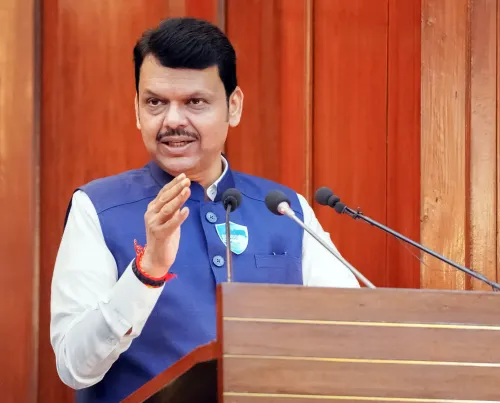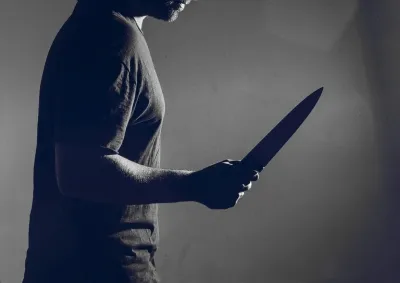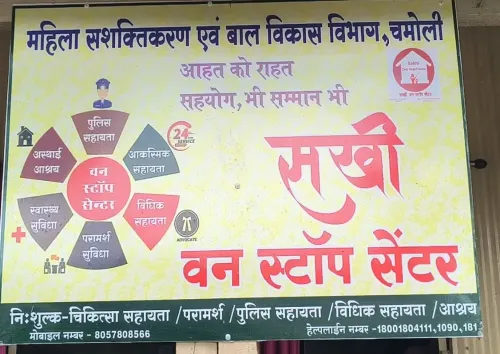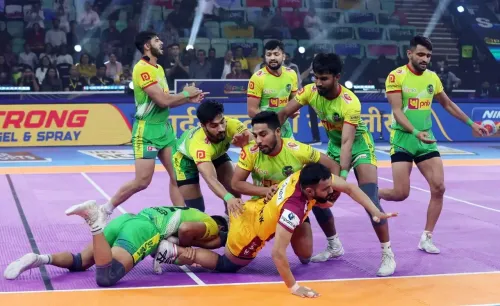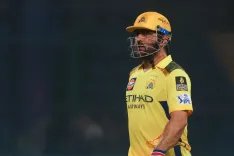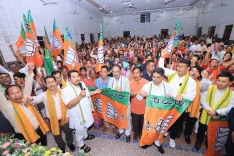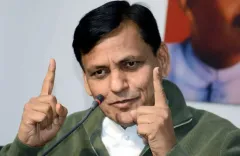Did the Supreme Court Criticize Delhi Police for Delays in 2020 Delhi Riots Bail Petitions?
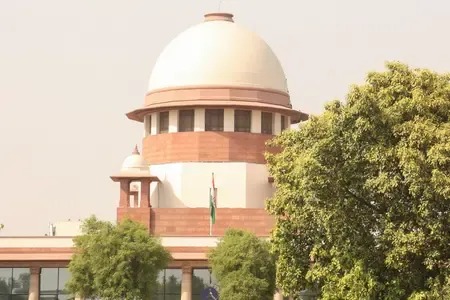
Synopsis
Key Takeaways
- Supreme Court reprimands Delhi Police for delays.
- Activists have spent over five years in jail.
- Hearing scheduled for Friday.
- Concerns over the right to a timely trial.
- Case revolves around the 2020 Delhi riots.
New Delhi, Oct 27 (NationPress) The Supreme Court on Monday admonished the Delhi Police for requesting extra time to submit its counter-affidavit regarding the bail petitions from student activists Umar Khalid, Sharjeel Imam, Meeran Haider, Gulfisha Fatima, and Shifa-ur-Rehman. These individuals are implicated in the 2020 Delhi riots, which are categorized as a 'larger conspiracy' case under the Unlawful Activities (Prevention) Act (UAPA).
A bench consisting of Justices Aravind Kumar and N.V. Anjaria emphasized that this matter should not face any further delays and scheduled a hearing for Friday. They instructed the Delhi Police to file their counter-affidavits in the interim.
Initially, Additional Solicitor General (ASG) S.V. Raju, representing the Delhi Police, requested a two-week extension to file a response. However, the Justice Kumar-led bench declined the request, asserting that ample time had already been allocated.
“We have provided sufficient time. You may be appearing for the first time. Previously, we mentioned in open court that we would hear this matter on October 27 and resolve it,” the apex court stated.
When ASG Raju requested at least one week, the Justice Kumar-led bench remained unswayed. “What is the rationale for a counter-affidavit in a bail case?” the court inquired.
Senior advocates Kapil Sibal and Abhishek Manu Singhvi, representing the petitioners, opposed the request for adjournment, pointing out that the accused have already spent over five years imprisoned without trial.
“When delays are in question, there can be no further postponement,” Singhvi contended.
“The petitioners have been incarcerated for over five years,” Sibal added, urging the apex court to proceed with the hearing.
Justice Kumar responded, “Mr. Raju, consider if you can come up with a resolution... after all, it concerns bail... five years have passed,” Justice Kumar remarked.
“Let me review it, but sometimes appearances can be misleading,” ASG Raju replied.
The Supreme Court subsequently scheduled the matter for Friday.
The petitioners are contesting the Delhi High Court's ruling to deny them bail, which indicated there was prima facie evidence suggesting a conspiracy behind the 2020 riots.
The Supreme Court had issued a notice to the Delhi Police on September 22. The February 2020 Delhi riots, which erupted during protests against the Citizenship Amendment Act (CAA) and the National Register of Citizens (NRC), resulted in 53 fatalities and left over 700 individuals injured.

